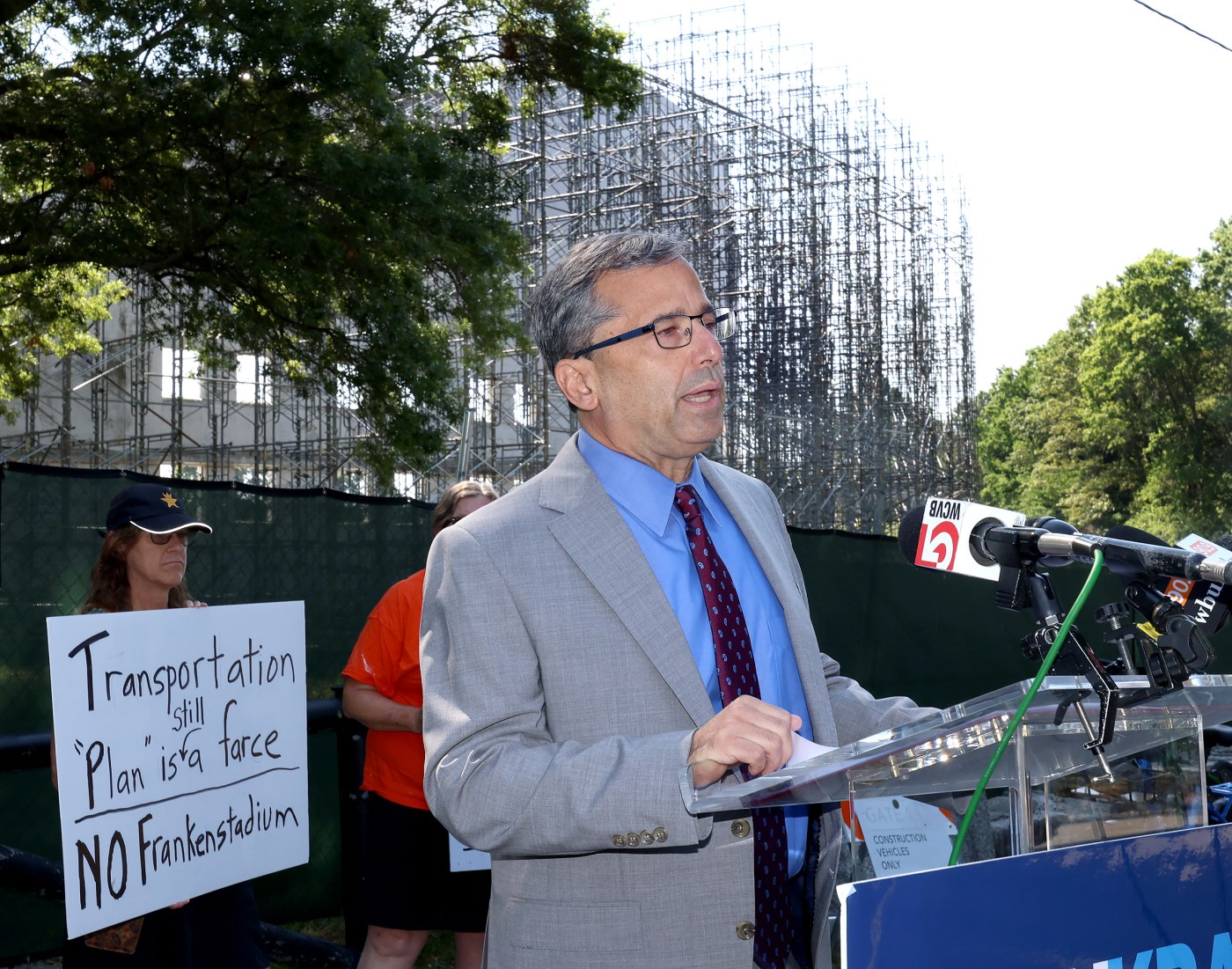The contentious Boston mayoral race has taken a sharp turn with candidate Josh Kraft leveling serious accusations against incumbent Mayor Michelle Wu, alleging deliberate obfuscation of the final taxpayer costs associated with the ongoing public-private rehabilitation of White Stadium. This highly anticipated project, a focal point of urban development, faces renewed scrutiny as the election draws nearer, fueling public debate over fiscal accountability and government transparency.
Kraft’s criticism stems from Mayor Wu’s recent adjustment to the timeline for releasing the project’s comprehensive budget. Originally slated for release this summer, the mayor now indicates the final figures will not be disclosed until “later this calendar year,” contingent upon the finalization of all construction bids. This delay, according to Kraft, is a strategic maneuver designed to withhold crucial financial details from Boston taxpayers until after the upcoming mayoral election, raising significant questions about the administration’s commitment to openness.
During a recent press conference held at the White Stadium construction site, Kraft unequivocally stated, “You know what that means — it means she won’t disclose these figures until after the election.” He further lambasted the mayor, asserting that her administration has consistently downplayed the project’s true financial implications from its inception, fostering an environment where clarity on taxpayer dollar expenditure is noticeably absent in Boston politics.
The financial scope of the White Stadium project has already seen substantial escalation. The city’s allocated share nearly doubled from an initial $50 million to $91 million by the close of last year. Furthermore, an investigation unveiled by Kraft last month suggested that taxpayer costs could potentially soar as high as $172 million, a figure Mayor Wu had previously acknowledged as a “worst-case scenario” while defending her administration’s management of the White Stadium project.
Mayor Wu had previously communicated that a clearer financial picture would emerge after various construction aspects were put out to bid, a process she indicated began in the summer. Earlier this month, she reiterated a timeline suggesting a resolution in “a few weeks.” However, a recent radio appearance saw her retract this commitment, opting not to provide an updated cost estimate and instead stating that final figures would materialize “later this calendar year” once all bids were submitted, emphasizing market dictation of costs.
Despite the mounting pressure, Mayor Wu has staunchly defended her administration’s fiscal transparency regarding the White Stadium rehabilitation. Speaking to reporters after a campaign event, she highlighted that the city has publicly pegged demolition costs at $5 million and pledged to share other expenditures as they become available. Wu maintained that the “larger package,” or the final budget, would be released “this year as well” once finalized, following standard city building project procedures, and cited public meetings and a shared lease agreement with the NWSL team as evidence of openness.
Conversely, Josh Kraft argues that the considerable public funds earmarked for the stadium could be allocated more effectively to address pressing urban priorities such as housing production, residential tax relief for seniors, and improvements to public schools. He called for Mayor Wu to cease “hiding behind process and bid deadlines,” asserting that her perceived lack of transparency is entirely unacceptable and proposing to cancel the current contract to develop a high-school-only stadium renovation plan, focusing on essential community needs.
Ironically, while Kraft championed financial transparency, his press conference was largely dominated by questions concerning his own unfulfilled pledge to release his tax returns and financial statements. Kraft has indicated that his 2024 tax return is on extension, setting his IRS filing deadline after the preliminary September election. He maintained his stance, stating, “I will release my financial information when it’s ready, and on my timeline,” affirming his commitment to eventually disclose the information.
Adding another layer to the political discourse, Mayor Wu, who had previously challenged Kraft to release his financial records to disclose any potential “entanglements,” seized on his delay, accusing him of attempting to conceal information. Wu, who herself released her tax returns in May, questioned Kraft’s true intentions, suggesting his calls for transparency might be selective, especially given his associations and potential conflicts of interest, further intensifying the debate over financial disclosure in the Boston mayoral race.





Leave a Reply